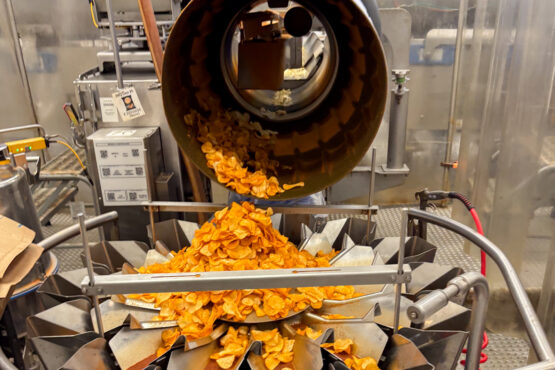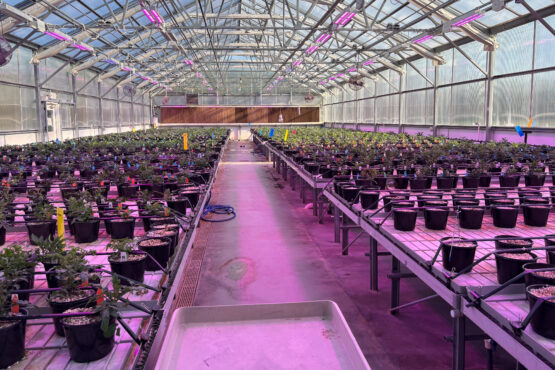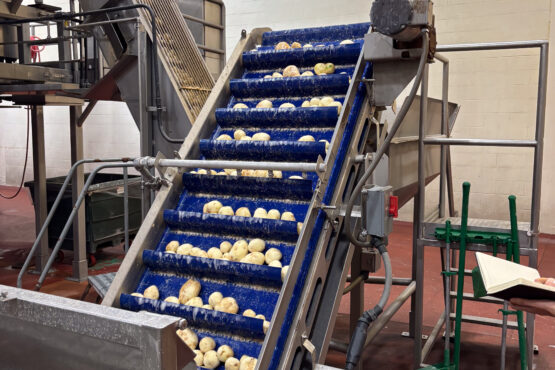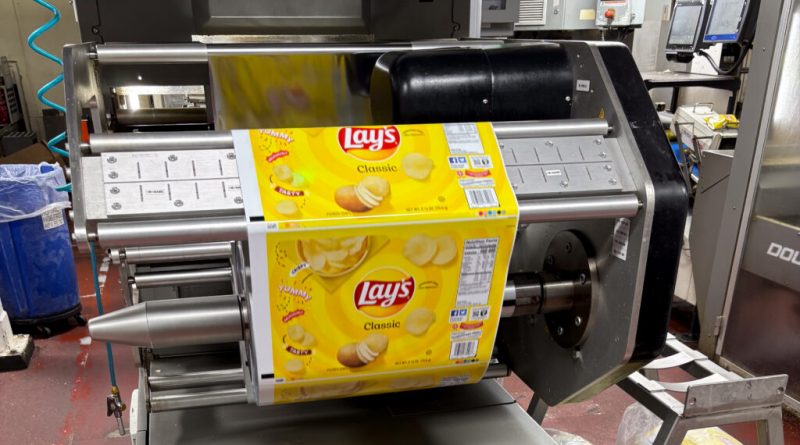PepsiCo Launches Ambitious Initiative to Transform Lay’s Barbecue Chips
PepsiCo is transforming its beloved potato chip brand to better align with consumer tastes and regulatory demands.
The snack and beverage leader is now focusing on using only natural colors and flavors for its products. This transition includes reformulating six varieties of barbecue chips, such as honey, lightly salted, and kettle-cooked mesquite.

PepsiCo’s chip manufacturing facility in Beloit, Wisconsin. Image: Bloomberg
“Barbecue is one of our most valued flavors,” stated Justin French, a senior director in research and development at PepsiCo. This flavor closely trails the classic salted Lay’s chips in sales, making any changes delicate.
PepsiCo is replacing synthetic dyes with vegetable juices and carob powder in its barbecue-flavored chips. While the flavors have always been natural, the implications of the new colorants required careful assessment. The company asserts that consumers are unlikely to perceive any differences in appearance or taste.
In a broader industry trend, PepsiCo is joining various major food companies in committing to phase out synthetic colors, responding to pressures from Health Secretary Robert F. Kennedy Jr., who links health problems to artificial ingredients. The administration has called for voluntary removal of specific artificial dyes, although it hasn’t enforced mandatory regulations. Consequently, corporations like Walmart Inc and Grupo Bimbo SAB are working to eradicate these dyes.
The parent company of Gatorade and Tostitos is also facing pressure from activist investor Elliott Investment Management, which has taken a $4 billion stake in PepsiCo. Last month, Elliott urged PepsiCo to reassess and simplify its snack lineup, indicating a decline in market share for North American beverages and sluggish growth in North American foods.
ADVERTISEMENT
CONTINUE READING BELOW
Despite claiming that most of their products do not use these dyes—only about 20% of Lay’s chips contain them—packaged food companies are intensifying their efforts to tackle the remaining percentage.
This often incurs substantial costs, as companies must conduct thorough testing to ensure consumer approval of the new formulations. While PepsiCo has not revealed the expenses tied to its Lay’s transformation, the company has stated it will not increase chip prices as a result.
Potato Development
Many of the Lay’s potatoes are sourced from Rhinelander, Wisconsin, one of PepsiCo’s agricultural breeding facilities dedicated to developing potatoes characterized by low sugar content, white flesh, and a smooth, round shape for easy peeling.
“They clean very well, as we want to prevent hidden rocks and dirt from damaging our slicer blades, which can affect chip texture and, ultimately, the customer experience,” explained Joshua Parsons, who manages the breeding facility.

PepsiCo’s agricultural breeding facility in Wisconsin. Image: Bloomberg
At the Rhinelander facility, well-lit areas and a greenhouse house thousands of pots containing white-flowered potato plants.
Following a multi-year breeding process, these potatoes are cultivated in regions such as Heartland Farms in Hancock, Wisconsin, about two hours south, where they are stored in large mounds in cool sheds.
The harvested crops are sent to processing plants, with one located in Beloit, near the Illinois border. This facility, where machines convert foil sheets into chip bags, processes around 150 million pounds of PepsiCo products annually, including 40 million pounds of Lay’s chips.
Specialized equipment at the plant discards defective chips and sorts larger chips into bigger bags while funneling smaller ones into single-serving packages.
ADVERTISEMENT:
CONTINUE READING BELOW
According to PepsiCo, Lay’s commands over a third of the $11.7 billion U.S. potato chip market, making it a critical brand within the company’s North America foods division. Last quarter, this segment generated nearly $6.5 billion in sales, accounting for almost 30% of the company’s total revenue.

Potatoes being processed in the Beloit facility. Image: Bloomberg
“When implementing these changes, we deconstruct the recipe into its individual elements—colors, flavors, and spices,” noted French.
PepsiCo aims to remove synthetic colors and flavors from its entire Lay’s potato chip lineup by the end of the year, including baked and kettle-cooked varieties, as well as cheddar cheese-flavored Stax chips, which will use paprika for coloring. Also, two Lay’s dips, ranch and French onion, will transition to natural ingredients by early next year.
“Introducing these new elements necessitates a careful balance,” French mentioned in an interview.
As part of the redesign, PepsiCo will feature its chips in new matte bags adorned with potato illustrations and a refreshed logo. Additionally, the company is starting to fry its baked Lay’s chips in olive oil, requiring investments in three facilities, while reduced-fat kettle-cooked sea salt chips will be prepared with avocado oil. Standard Lay’s chips will continue to be made with vegetable oil due to cost considerations. Lay’s also plans to launch two new baked flavors in January: loaded baked potato and roasted potato with herbs.
French emphasized that PepsiCo is motivated to make these adjustments by changing consumer preferences and the anticipation of future regulatory changes.
© 2025 Bloomberg
Follow Moneyweb’s extensive finance and business news on WhatsApp here.




